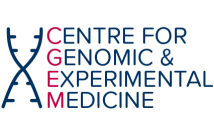Proteomics add power to drug discovery
Combining protein and DNA information provides stronger support for specific proteins in development of disease: July 2020

The targets of most medications prescribed today are proteins. For many common diseases our understanding of the underlying causes is often incomplete, and our ability to predict whether new drugs will be effective is remarkably poor. One important limitation of genetics as a means to identify drug targets is that standard study designs link disease risk to DNA but do not explain how the genotype leads to disease.
Researchers from the MRC Human Genetics Unit, University of Edinburgh and collaborators published a new study examining statistical links between DNA variants and the blood levels of 249 proteins, in two separate groups of Europeans. This information was used to predict protein levels in other large genetic studies.
In many cases, this second step gave evidence that high or low levels of a given protein play a role in causing a given disease. Among dozens of high-confidence links, new causal roles were suggested for a protein called SHPS1 in schizophrenia, and of another protein (FABP2) in heart disease. This method takes advantage of information from large numbers of existing genetic studies and helps prioritize specific proteins as potential drug targets.
Links
Haley Research Group
Original article: https://doi.org/10.1371/journal.pgen.1008785


